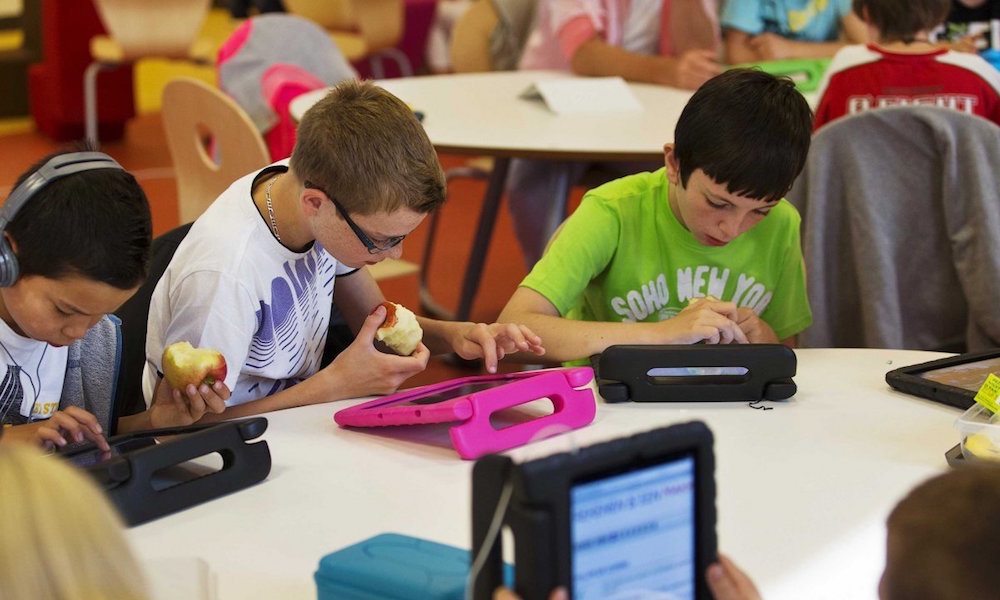British Politician Calls on Teachers to Confiscate iPads, Says Students Are Spending ‘Too Much’ Time Using Them in the Classroom

Toggle Dark Mode
Apple’s iPad has become quite the polarizing device, capable of carrying out tasks and running apps much akin to how — albeit not as effective as — our laptop or desktop computers would. To that end, one of the more promising areas where Cupertino’s tablet has established itself as a useful computing tool is in the classroom.
Indeed, Apple has persisted, year-after-year, to release new updates and software programs meant to make iPad the most capable, versatile, and ideal tool for educators to supplement their lesson plans — and for students, as well, to learn the material in a unique and immersive new way.
But yet, the debate also persists — is Apple’s iPad really an effective teaching tool? Are students getting too much “screen time” in the classroom? This is an argument that’s grown somewhat long-in-the-tooth by now, as parents, educators, and school districts all around the country continue to grapple with the pros and cons of allowing their kids to use iPads so often.
However, the debate recently gained international attention thanks to one Conservative British Politician — U.K. Minister for Children and Families, Edward Timpson. According to a report in The Telegraph, Timpson, speaking to his fellow colleagues on the House of Lords and Communications Committee, expressed that he believes students are becoming “far too reliant” on Apple’s slate in the classroom.
Not only that, but, according to CultofMac, Timpson also expressed his sentiments that iPad is contributing to bullying in the classroom — calling on educators to “confiscate” the devices from students who are determined to be using them to “carry out inappropriate activities.”
For his part, Timpson did admit that confiscation should be “a last resort” for teachers, and that a more ideal solution to the broader problem would be for educators to define and establish a healthy balance — how to ensure that iPads don’t become a “battleground” over which students and teachers are constantly fighting for attention.
“A problem in a number of schools which we’ve sought to address is the iPad or the tablet coming into schools and it forming far too much of the school day’s activities of children and it being used inappropriately for some of the bullying and harassment that we know sadly goes on the back of it,” Timpson said. “That’s why we’ve strengthen the powers of head teachers to confiscate and remove material and so on. Children will be spending more of their life living through a tablet. It is the direction we now know is going to be taking hold for the foreseeable future and we have to respond to that.”
Timpson’s is an interesting perspective, don’t you think? There’s no doubt that iPad has shown potential as an effective teaching tool — even though there still exist plenty of pros and cons on either side of the argument.
What do you think about the iPad’s role in the classroom? Let us know in the comments!






